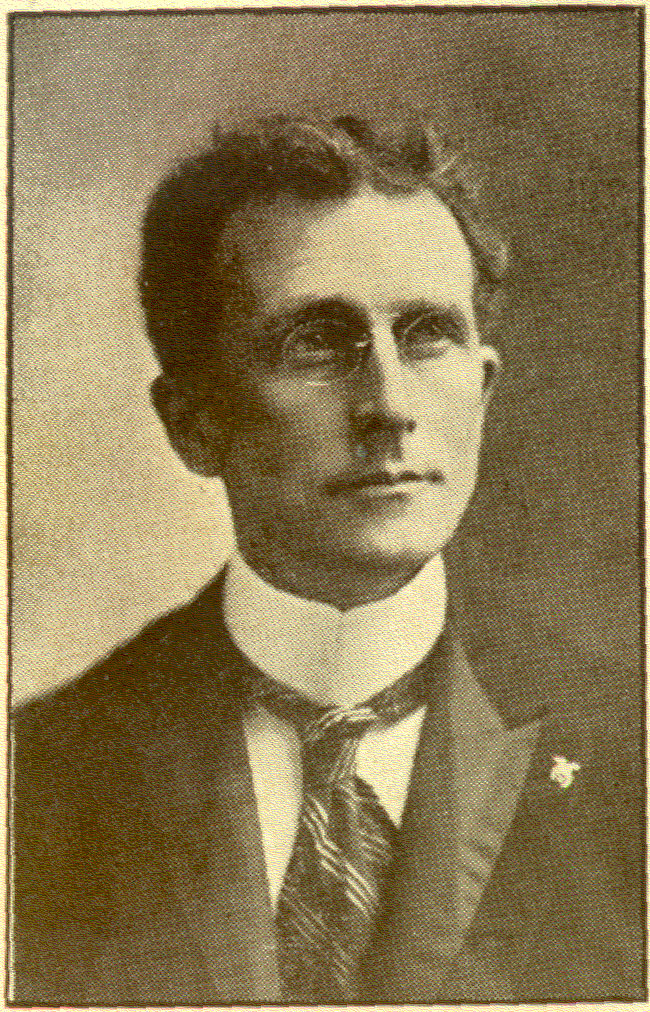
DANIEL E. WILLARD
Geologist at NDAC: 1904 - 1910
Daniel Everett Willard was the second geologist to teach at the NDAC. His obituary, as was published in the American Journal of Science (1947), is available here. We also know this much about him from the 1908 NDAC Bulletin.
Graduated from Alfred University, N.Y., with the degree B. A. Received the degree M. A. 1895 from the University of Chicago. Principal of Albion Academy. Professor of Natural Sciences at the Mayville State Normal School, North Dakota. Professor of Geology at the North Dakota Agricultural College, 1903. Assistant in United States Geological Survey. Author of the "Story of the Prairies" and "Geography of North Dakota."
In 1908, Willard provided the following statement about the activities of the Department.
"Many great things have small beginnings. This is true of the Department of Geology as well as many of the other departments of the College. Hand in hand with the growth of the department we find the rise of Charles M. Hall from student to professor to head of department. The Department of Geology began its existence as a part of the Chemical Department, and continued as such until Mr. Hall, who graduated from the College in 1895, completed his work at Johns Hopkins University in 1898 and returned to take up his duties as Professor of Geology. Professor Hall continued his work at the College as geologist and superintendent of the Geological Survey until his death in 1903. It was due to his constant work and never tiring efforts that this department has been established on its present foundation.
Upon the death of Professor Hall, Prof. D. E. Willard became the geologist and has held this position up to the present time. During the time that he has been connected with the College, Professor Willard has done much for the advancement of this interesting science in the state. The soil surveys ,which are under his direct supervision , have been of great benefit to the state, not only from the geologist's standpoint but also with the people who have to depend on the soil as a means of livelihood. In the biennial report of the Soil Survey which is sent to the governor by the director there is given a complete list of the soils which have been examined together with the locality from which they were taken and an analysis of each. This analysis includes both the chemical and mechanical analysis and enables a person to tell exactly what kind of soil he would expect to find in any part of the state which has been listed in the report. Aside from the soil survey the water supply is also given considerable attention. The artesian basin of the state has been mapped and the geologist can tell a person in any part of the state whether or not it will be advisable to sink an artesian well.
It is such subjects as these that are taken up in the class room and discussed with a view to familiarizing the student with the various conditions that exist throughout the state. The formation of soils is taken up and given considerable study. Aside from these subjects of local interest the students are led into the mysteries of Paleontology, and the evolution of plant and animal life and the recorded history of the earth as found in the rocks becomes a study which is exceedingly interesting."



